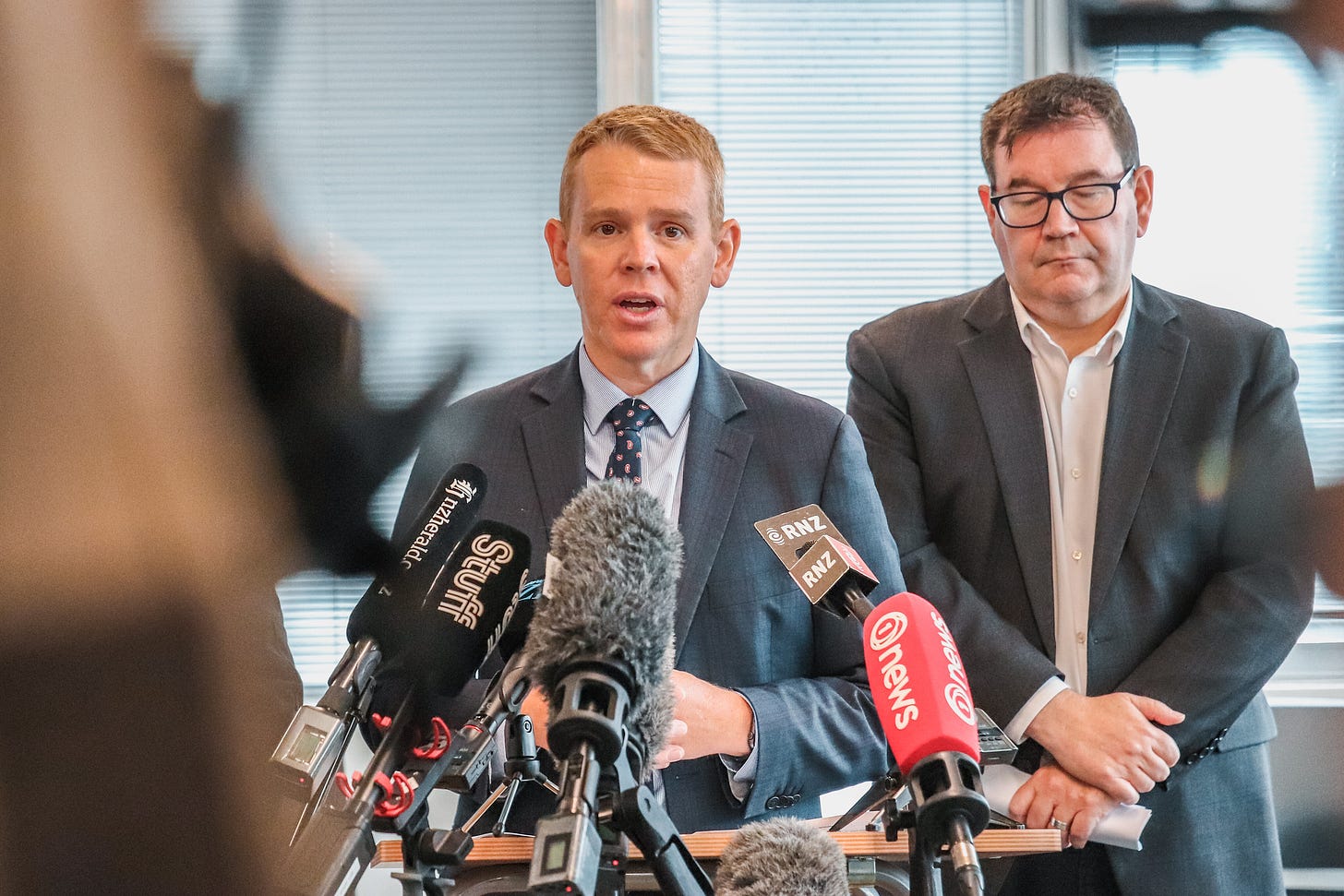
TLDR: He’s done it. New PM Chris Hipkins has ‘cleared the decks’ of all manner of flotsam and jetsam to make the Labour Government’s ship go faster and have a clearer field of fire for targeting National when the election campaign starts in earnest shortly after the May Budget.
Hipkins announced his new ministry had decided at its first substantial Cabinet meeting this afternoon to ditch all manner of loose items and policy debris that could trip up Labour in its quest to win a third term by focusing voters’ attention on the Opposition’s policies, rather than the Government’s own record.
The widely-flagged changes included:
ending work this term on a social insurance scheme that would have forced employers and employees to each pay 1.39% of income in premiums for an unemployment and illness insurance scheme to be administered by ACC;
suspending plans for a biofuels mandate aimed at reducing climate emissions up to 10 million tonnes by 2035, but that would have increased fuel prices;
ending plans for a TVNZ-RNZ merger (on which $23 million has already been spent on consultants), but with plans for around $10 million or 20% in extra funding for RNZ, and unspecified funding for NZ on Air;
ending work this term on hate speech legislation;
unspecified changes over an unspecified period to Three Waters; and,
increasing the minimum wage in line with CPI inflation (7%) or $1.50 per hour to $22.70/hour from April 1, which means no real increase in the minimum wage (the previous five increases under Labour averaged twice the CPI inflation rate).
A longer honeymoon bounce in the polls?
The perfectly-executed change of captain from Jacinda Ardern to Hipkins over the last three weeks and his no-nonsense ‘bread and butter’ approach has already delivered the Government a honeymoon bump in the polls. This latest tidying of the deck looks set to extend that honeymoon some more, largely because it removes any lingering fear of higher petrol prices, a stealth ‘tax increase’ for employers and workers and (for now) might quieten the noise about ‘co-governance’.
"We are looking to remove distractions, or things that while they may be worthy are not the highest priority at the moment." Chris Hipkins speaking at his post-cabinet news conference.
The next question is whether the Government’s supporters hold their ranks straight, or whether the various ditching of favourite policies fosters any mutinous thoughts. So far, Hipkins has been careful to soothe some of the potentially most fevered brows (the Māori caucus) with continued cabinet posts (Nanaia Mahuta) and higher rankings (Willie Jackson and Kiri Allan).
The focus now returns to National and what its policies look like when they’re unveiled around the Budget.
So how low can they both crawl now?
Now that Labour has adopted a low target strategy, National will have to decide whether it takes more risks with policies that could prove targets for scare campaigns, including health, education and transport spending cuts, and the funding of tax cuts generally.
National will also have to reassure voters it won’t adopt ACT’s more extreme policies, largely because ACT will only go with National in a tight result, rendering it just as impotent as the Greens, who will only ever go with Labour.
We will see how low the two main parties can go to avoid the cannonballs and musket shots of scare campaigns they’ll be firing across those decks at each other.
There will be quite a lot of political crawling about said decks, along with lot of noise and smoke.
Meanwhile, neither party is addressing the economy’s core problems or opportunities, because doing so creates the risks of being seen to upset the status quo, which various interest groups have learned how to protect, defend and enhance in this risk-averse political environment.
Ka kite ano
Bernard















Hipkins clears the decks and crouches down low